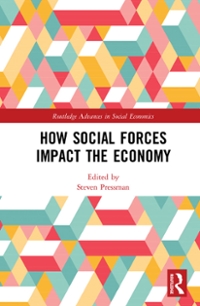Question
Alice, Bill and their mother are deciding how to split a chocolate bar. Assume that the chocolate bar has 8 squares, so can only be
Alice, Bill and their mother are deciding how to split a chocolate bar. Assume that the chocolate bar has 8 squares, so can only be divided into multiples of 1/8. Assume also that each only wants to maximise how much chocolate he or she gets.
(a) Consider the following simultaneous move game: Alice, Bill and the mom each name a fraction of the chocolate bar that would be allocated to them. If the three fractions add up to a number less than or equal to 1, each player gets the share of the chocolate equal to the fraction they named (eg. if the mom says 1/4 Alice says 1/4 and Bill says1/4, each gets 1/4 of the chocolate). If the three fractions add up to more than 1, each player gets no chocolate. Name one Nash equilibrium of the game.
(b) Does the gain in (a) have any Nash equilibria in which no player gets any chocolate ?
If yes, state one such NE. If not, explain why not.
(c) Consider the following sequential move game in the first stage, the mom divides the chocolate bar into 3 pieces. In the second stage, Alice takes one of these three pieces. In the second stage, Bill takes one of the remaining two pieces. The mom then gets the piece that remains. This game has two SPNE. In both of them, the mom gets the same fraction of the chocolate. What is this fraction? Explain in two sentences, and feel free to include a drawing if it helps.
Step by Step Solution
There are 3 Steps involved in it
Step: 1

Get Instant Access to Expert-Tailored Solutions
See step-by-step solutions with expert insights and AI powered tools for academic success
Step: 2

Step: 3

Ace Your Homework with AI
Get the answers you need in no time with our AI-driven, step-by-step assistance
Get Started


